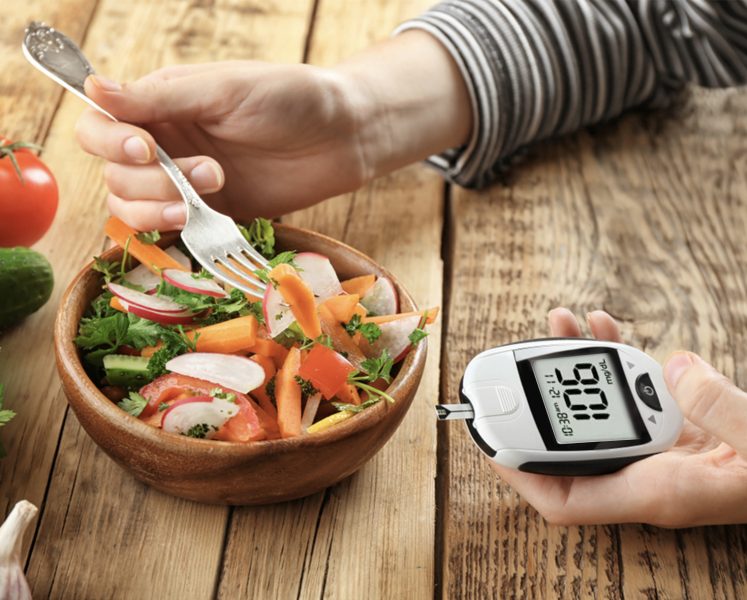What are diabetic complications?
Diabetic complications are serious health problems that can develop as a result of having diabetes for a long time. They can affect many body parts, including the eyes, nerves, kidneys, heart, and blood vessels.
How do diabetic complications develop?
Over time, high blood sugar levels can damage small and large blood vessels throughout the body. This damage can lead to several complications, including:
- Nerve damage (diabetic neuropathy): This can cause pain, numbness, and tingling in the hands and feet. It can also lead to problems with digestion, bladder control, and sexual function.
- Eye damage (diabetic retinopathy) can lead to vision loss or blindness.
- Kidney damage (diabetic nephropathy): This can lead to kidney failure, which requires dialysis or a kidney transplant.
- Heart problems: This can include coronary artery disease, which can lead to heart attack and stroke.
- Foot problems: This can include diabetic foot ulcers, which can lead to gangrene and amputation.
What are the symptoms of diabetic complications?
The symptoms of diabetic complications vary depending on the type of complication. Some common symptoms include:
- Nerve damage: Pain, numbness, tingling, burning, and weakness in the hands and feet
- Eye damage: Blurry vision, floaters, and vision loss
- Kidney damage: Swelling in the ankles, legs, and feet; fatigue; and changes in urination
- Heart problems: Chest pain, shortness of breath, and fatigue
- Foot problems: Redness, swelling, pain, and drainage from sores on the feet
How can I prevent diabetic complications?
The best way to prevent diabetic complications is to control your blood sugar levels. This can be done by:
- Following a healthy diet: Eating plenty of fruits, vegetables, and whole grains, and limiting processed foods, sugary drinks, and unhealthy fats
- Exercising regularly: Aim for at least 30 minutes of moderate-intensity exercise most days of the week
- Taking your diabetes medications as prescribed: Your doctor may prescribe insulin or other medications to help control your blood sugar levels
Risk Factors for Diabetic Complications
Several factors can increase your risk of developing diabetic complications, including:
- Duration of Diabetes: The longer you have diabetes, the higher your risk of developing complications.
- Blood Sugar Control: Poor blood sugar control, measured by hemoglobin A1c (HbA1c) levels, is a significant risk factor for diabetic complications.
- High Blood Pressure: Having high blood pressure along with diabetes significantly increases the risk of complications.
- Smoking: Smoking damages blood vessels and worsens diabetic complications.
- High Cholesterol: High LDL (bad) cholesterol and low HDL (good) cholesterol contribute to developing diabetic complications.
- Family History: A family history of diabetes or diabetic complications increases your risk.
In addition to controlling your blood sugar levels, there are several other things you can do to reduce your risk of developing diabetic complications, including:
- Maintaining a healthy blood pressure: High blood pressure is a significant risk factor for diabetic complications. You can control your blood pressure by eating a healthy diet, exercising regularly, and taking your blood pressure medications as prescribed.
- Quitting smoking: Smoking is a significant risk factor for diabetic complications. Quitting smoking can help to reduce your risk of developing these complications.
- Getting regular eye exams: Diabetic retinopathy can lead to vision loss or blindness, but regular eye exams can help to detect and treat this complication early.
- Getting regular foot exams: Diabetic neuropathy can lead to foot ulcers and gangrene, but regular foot exams can help to detect and treat these problems early.
Types of Diabetic Complications
Diabetic complications can affect various body parts, including the eyes, nerves, kidneys, heart, and blood vessels. Some common types of diabetic complications include:
- Diabetic Retinopathy: This condition affects the blood vessels in the retina, the light-sensitive tissue at the back of the eye. Over time, high blood sugar can damage these blood vessels, leading to blurred vision, floaters (dark spots or shapes floating in the field of vision), and even vision loss.
- Diabetic Neuropathy: This condition damages the nerves throughout the body, causing pain, numbness, tingling, and burning sensations, particularly in the hands and feet. Diabetic neuropathy can also affect digestion, bladder control, and sexual function.
- Diabetic Nephropathy: This condition damages the kidneys, which filter waste products from the blood. Over time, high blood sugar can damage the tiny blood vessels in the kidneys, leading to decreased kidney function and, eventually, kidney failure.
- Coronary Artery Disease: This condition affects the large blood vessels that supply blood to the heart. High blood sugar can increase plaque buildup in these arteries, narrowing them and reducing blood flow to the heart. This can lead to chest pain (angina), heart attack, and stroke.
- Diabetic Foot Problems: Diabetes can damage the nerves and blood vessels in the feet, increasing the risk of foot ulcers and infections. These complications can be challenging to heal and may lead to amputation in severe cases.
Prevention and Management of Diabetic Complications
While there is no cure for diabetes, you can take steps to prevent or delay the onset and progression of diabetic complications. These measures include:
- Maintain Good Blood Sugar Control: Aim for HbA1c levels close to the target range recommended by your doctor.
- Manage Blood Pressure: Keep your blood pressure within the normal range.
- Quit Smoking: Smoking cessation is crucial for reducing the risk of diabetic complications.
- Maintain a Healthy Lifestyle: Eat a balanced diet, exercise regularly, and maintain a healthy weight.
- Regular Check-ups and Screenings: Schedule regular visits with your doctor to monitor blood sugar, blood pressure, and other health factors. Get regular eye exams and foot checks.
- Adhere to Medications: Take all prescribed medications as directed by your doctor to control blood sugar, blood pressure, and cholesterol.
Remember, early detection and management of diabetic complications are crucial for preventing severe health problems and improving overall well-being.









